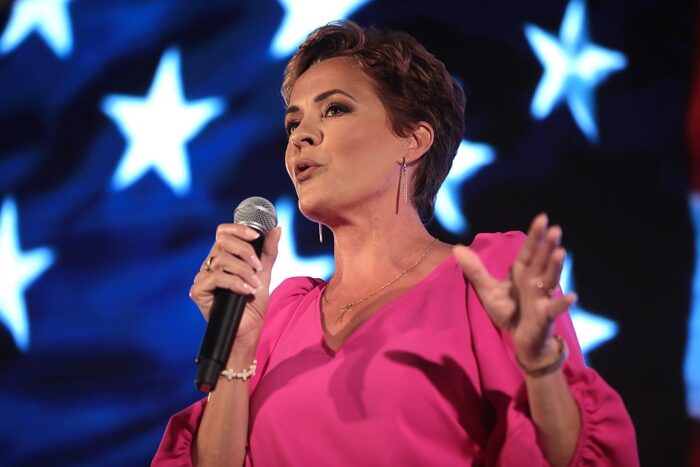Recent polling in Arizona’s highly competitive U.S. Senate race is now suggesting a potential path to victory for conservative candidate Kari Lake, who has been trailing in the polls for several months. This shift indicates a quickly changing dynamic in voter sentiment as the election approaches.
Lake, who previously ran for governor in 2022 with President Trump’s endorsement, is now showing a potential lead in Arizona’s U.S. Senate race. According to an analysis by The Hill, Lake is ahead of her likely Democratic opponent, Representative Ruben Gallego (D-AZ), by two percent. Initially, polls favored Gallego, but Lake has been consistently criticizing the surge of migrants at Arizona’s southern border, attributing it to Gallego’s support of President Biden’s immigration policies. The shift in the polls comes in a state that Trump won by 3.5% in 2016 and that Biden narrowly carried by 0.3% in 2020.
Factors like partisan lean and incumbency, which are typically advantageous, appear to be working against Gallego in the current Arizona Senate race climate. Arizona residents’ frustrations with migration issues and the high cost of living have overshadowed the usual benefits of congressional incumbency. Lake, who launched her campaign in February, has been trailing Gallego by about 5% consistently in early polls. However, recent trends have shown this gap narrowing significantly, with the latest poll conducted shortly after Biden’s widely criticized debate performance showing Lake and Gallego tied at 47% each.
Lake is navigating a complex political landscape, striving to balance her staunch MAGA affiliations while adjusting her rhetoric to appeal to the broader 2024 electorate. After her 2022 gubernatorial loss to Katie Hobbs, Lake pursued several legal challenges to the election results, all of which were ultimately dismissed. More recently, Lake has sparked controversy with her comments suggesting that Arizonans “strap on a Glock” for the upcoming elections, a statement that drew criticism from U.S. Senator Mark Kelly (D-AZ), whose wife, former Congresswoman Gabby Giffords, was severely wounded in a shooting incident in 2010.
Lake has recently focused her campaign messaging on core issues such as Washington’s dysfunction, rampant inflation, and the need for increased housing in the southwest. Her approach appears to be resonating within the Republican Party, as evidenced by her receiving endorsements from 23 of the U.S. Senate’s 49 Republicans. This support is crucial as she heads into the Republican primary on July 30th. Additionally, during an event at Mar-a-Lago in April, hosted by Trump, Lake set a new fundraising record for a non-incumbent, amassing over $1 million, which underscores her growing influence and the solid backing she enjoys from high-profile figures within her party.
Lake made headlines late last year when it was revealed that the former chair of the Arizona GOP attempted to persuade her to exit the race. The suggestion was that “folks out East” would offer her future support if she stepped aside for a more moderate candidate. Lake rejected this proposal, later sharing with Glenn Beck that she expressed her disgust to then-chair Jeff DeWitt and celebrated his subsequent resignation, which she viewed as a consequence of the failed attempt to influence her campaign decision.
Lake’s campaign reported that they raised $4.1 million during the first quarter of this year, which is twice the amount they raised in the last fundraising quarter of 2023. According to The Daily Caller, Lake currently has around $2.5 million in cash on hand. According to the outlet, Gallego raised $7.5 million in the first quarter and currently holds $9.6 million in his campaign account, exceeding his Republican opponent in fundraising.
“Kari Lake doubled her fundraising haul from last quarter. She is seeing strong from grassroots donors and Arizona donors,” a Lake campaign spokesperson noted in a statement. “Gallego is Far-Left, and out of step with Arizonans. Just like President Trump, Kari is performing strong in Arizona and will win in November.”



